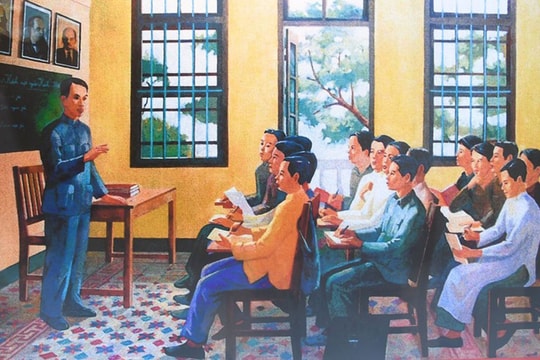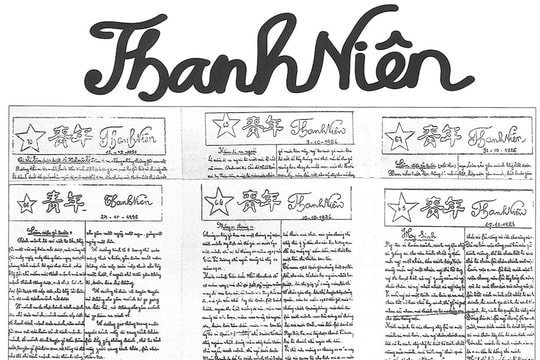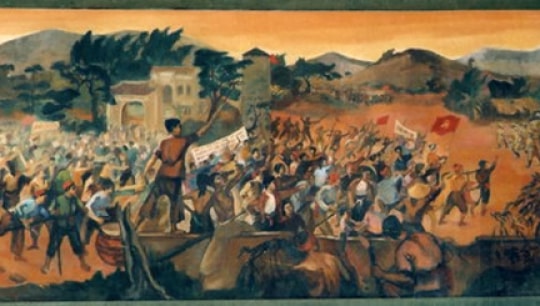Marks in the life of President Ho Chi Minh
(Baonghean.vn) - President Ho Chi Minh - the great father of the nation has hundreds of imprints, hundreds of touching stories, in which always contain his deep affection for the Vietnamese people. The following are important imprints in his life for the Vietnamese people.
» 10 places associated with Uncle Ho's great career
» Places that bear Uncle Ho's footprints around the world
President Ho Chi Minh was born on May 19, 1890, into a Confucian family of peasant origin, in Hoang Tru village, Kim Lien commune, Nam Dan district, Nghe An province, a place with a tradition of steadfast struggle against feudal colonial rule.
June 1911,He started to seek a way to save the country from Nha Rong port. During his 30 years of activities, he traveled to France and many countries in Europe, Asia, Africa, and America. He joined the movements of workers and people of the colonies, working to earn a living, studying, participating in revolutionary activities, and researching revolutionary theories.
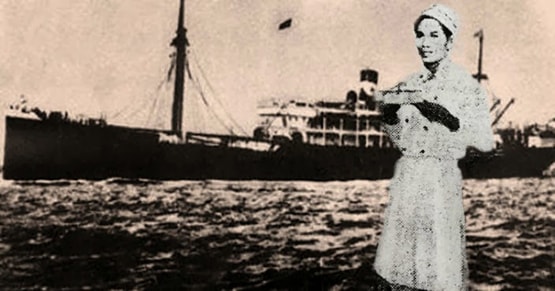 |
| On June 5, 1911, Uncle Ho took the name Van Ba and boarded the ship Amiral Latouche Tréville leaving Nha Rong port to find a way to save the country. Photo: IT |
1917The victory of the October Revolution in Russia and the birth of the Communist International brought him to Marxism-Leninism. From here, he clearly realized that it was the only correct path to national liberation and class liberation.
1919, He joined the French Socialist Party and was active in the French workers' movement.
December 1920,At the 18th Congress of the French Socialist Party in the city of Tours, he voted to join the Communist International and participated in the founding of the French Communist Party.
June 1919,On behalf of the Association of Vietnamese Patriots in France, he sent to the Versailles Conference (France) the Petition of the Annamese people, requesting the French Government to recognize the freedom and equal rights of the Vietnamese people.
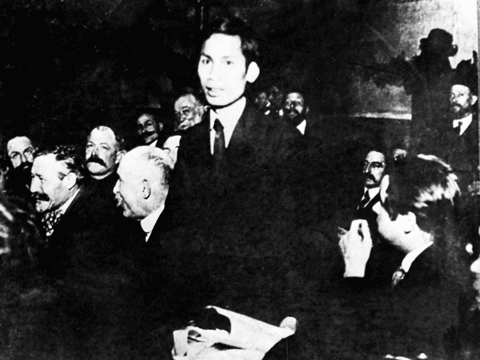 |
| At the National Congress of the French Socialist Party in Tours (France) in December 1920, comrade Nguyen Ai Quoc became one of the founders of the French Communist Party. Photo archive. |
From 1921 - June 1923, He participated in many activities to promote the movement to liberate colonial peoples, He participated in founding the Colonial Union; He used the French press to attack colonialism - notably he was the Editor-in-Chief of the newspaper Le Paria (The Miserable).
June 1922,During his time at the Phobua Club, he composed the play "The Bamboo Dragon" to criticize the puppet king Khai Dinh when he went to France to attend the Marseille Colonial Fair.
June 30, 1923,He came to the Soviet Union and began a period of activity, study and research on Marxism-Leninism and the socialist regime right in the great Lenin country. At the First Congress of the Peasants' International (October 1923), he was elected to the Presidium of the Peasants' International.
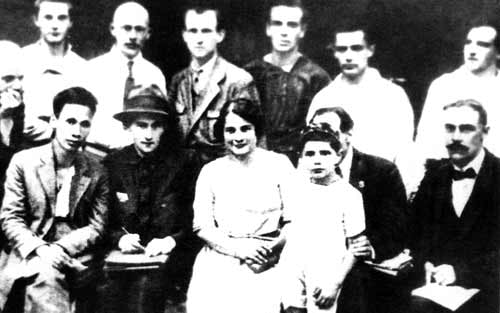 |
| Nguyen Ai Quoc (Ho Chi Minh) and some delegates attending the 5th International Communist Congress (July 1924). Documentary photo |
In 1924,Attending the 5th Congress of the Communist International and being appointed as a cadre of the Eastern Department of the Communist International, and concurrently a member of the Presidium of the Peasant International, Nguyen Ai Quoc was assigned to monitor and direct the revolutionary movement in a number of Asian countries.
1925In Guangzhou (China), he participated in the establishment of the Association of Oppressed Peoples of East Asia, founded the Vietnam Revolutionary Youth Association, published the Thanh Nien newspaper to spread Marxism-Leninism in the country, and opened training classes for cadres for the Vietnamese revolution.
In 1931,President Ho Chi Minh, then named Tong Van So, was arrested by the British government in Hong Kong and accused of being "a dangerous communist element" and "an envoy of the Third International who came to Hong Kong to overthrow the government".
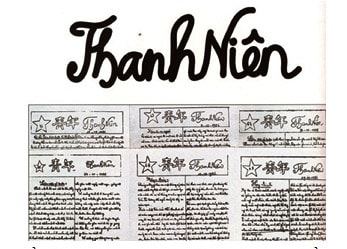 |
| Thanh Nien Weekly, founded and directly directed by Nguyen Ai Quoc, became the central mouthpiece of the Vietnam Revolutionary Youth Association. |
October 27, 1929The Communist International sent the Indochinese Communists a document On the Establishment of an Indochinese Communist Party, demanding that the Indochinese communists immediately overcome the divisions between communist groups and establish a proletarian class party.
February 3, 1930, He chaired the Party's founding conference held in Kowloon (near Hong Kong). The conference approved the Brief Platform, Brief Strategy, and Party Charter, which he himself drafted. He issued an appeal on the occasion of the founding of the Communist Party of Vietnam (later changed to the Indochinese Communist Party, then the Vietnam Workers' Party, and now the Communist Party of Vietnam).
In 1941,He returned to the country, convened the 8th Conference of the Central Executive Committee of the Indochinese Communist Party, decided on the path to save the country, established the Vietnam Independence League (Viet Minh), organized armed liberation forces, base policy, led people to revolt in parts and prepared for a general uprising to seize power throughout the country.
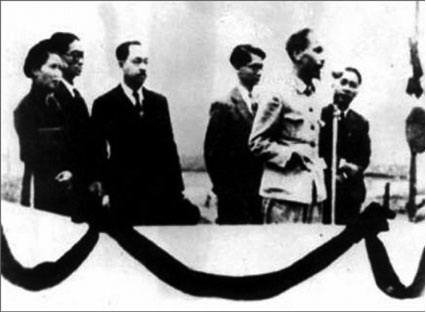 |
| On the morning of September 2, 1945, at historic Ba Dinh Square, President Ho Chi Minh read the Declaration of Independence, giving birth to the Democratic Republic of Vietnam. |
September 2, 1945,At Ba Dinh Square, President Ho Chi Minh read the Declaration of Independence announcing the establishment of the Democratic Republic of Vietnam; organized free general elections throughout the country, elected the National Assembly and passed the first democratic Constitution of Vietnam. The first National Assembly elected him as President of the Democratic Republic of Vietnam (1946).
December 19, 1946,He called on the whole country to resist the French colonial invasion, protect the independence and freedom of the Fatherland, and protect and develop the achievements of the August Revolution.
In the “Call for National Resistance”, President Ho Chi Minh wrote: “Fellow countrymen, we must make concessions. But the more we make concessions, the more the French colonialists encroach, because they are determined to take over our country again! No! We would rather sacrifice everything than lose our country, than become slaves…”.
June 1950,President Ho Chi Minh chaired the expanded Central Party Standing Committee meeting to decide to launch the 1950 Autumn-Winter Border Campaign. To lead and direct the preparation and command of the Campaign, the Party Committee and the Campaign Command were established with General Vo Nguyen Giap, member of the Central Party Standing Committee, Commander-in-Chief of the Vietnam People's Army, as Secretary of the Front Party Committee and Commander and Political Commissar of the Campaign. Key officials of the General Staff, the General Department of Politics, and the General Department of Supply were directly assigned to serve as Chief of Staff, Political Commissar, and Supply Commissar of the Campaign.
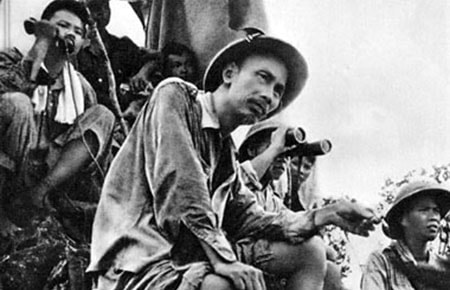 |
| Uncle Ho directed the border campaign in 1950. |
February 1951, The Second National Congress of the Party opened in the Viet Bac resistance base. In the Political Report presented at the Congress, President Ho Chi Minh clearly stated the Party's political tasks: Bringing the resistance to complete victory and organizing the Vietnam Workers' Party.
December 6, 1953, in Tin Keo, President Ho Chi Minh and the Politburo approved the General Command's operational plan and decided to launch the Dien Bien Phu campaign under the alias Tran Dinh. He instructed General Commander-in-Chief Vo Nguyen Giap: "This campaign is a very important campaign not only militarily but also politically, not only domestically but internationally. Therefore, the entire army, the entire people, and the entire Party must concentrate on completing it successfully."
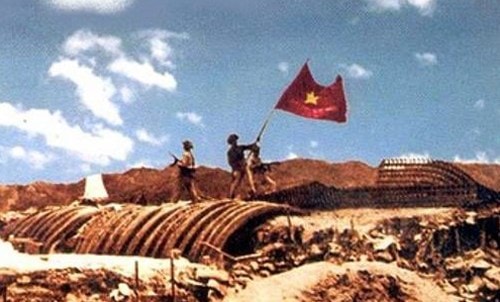 |
| The Dien Bien Phu victory shook the world. |
In 1958,President Ho Chi Minh wrote the work "Revolutionary Ethics", in which he stated the qualifications of a Party member: Must be absolutely loyal to the Party, determined to fight for the Party and the revolution all his life; strive to work for the Party, maintain Party discipline, put the interests of the Party and the working people above personal interests, wholeheartedly serve the people, fight for the Party and for the people; be exemplary in all matters, strive to study Marxism-Leninism, always use criticism and self-criticism to improve one's thinking and improve one's work and that of one's comrades to progress.
September 1960At the 3rd National Congress of the Vietnam Workers' Party, President Ho Chi Minh pointed out: "This Congress is a Congress to build socialism in the North and fight for peaceful reunification of the country." The Congress re-elected President Ho Chi Minh as Chairman of the Central Executive Committee of the Vietnam Workers' Party.
1962When receiving the delegation of Southern people visiting the North, President Ho Chi Minh said: "The image of the beloved South is always in my heart." He wished for the South to be liberated soon so that he could visit his beloved compatriots, cadres and soldiers.
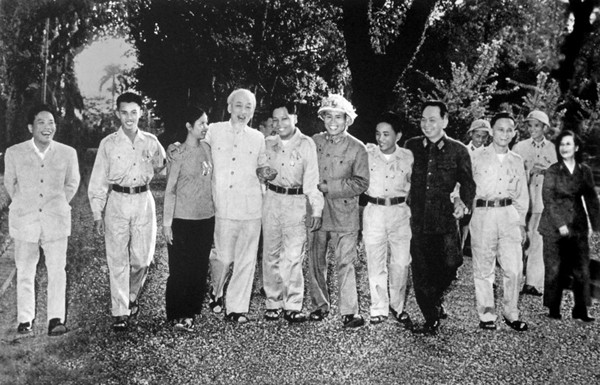 |
| President Ho Chi Minh received a delegation of heroic delegates and emulation fighters from the People's Armed Forces for the Liberation of the South visiting the North. |
In 1963,When the National Assembly of the Democratic Republic of Vietnam proposed to award the Gold Star Order to President Ho Chi Minh, he suggested: “Wait until the day the South is completely liberated and the Fatherland is unified, the National Assembly will allow the people of the South to award me that noble Order. Then all our people will be happy and joyful.”
August 1964,The US imperialists caused the “Gulf of Tonkin” incident, and from February 1965 expanded the war of destruction by air force to the North and massively sent US expeditionary troops to South Vietnam. Faced with that situation, President Ho Chi Minh called on all Vietnamese people: “At this time, fighting against the US to save the country is the most sacred task of all Vietnamese patriots.”
July 1966,The US used planes to bomb the capital Hanoi and Hai Phong city. President Ho Chi Minh encouraged the Vietnamese people to overcome hardships and sacrifices and called out: “The war may last 5 years, 10 years, 20 years, or even longer. Hanoi, Hai Phong and some cities and factories may be destroyed. But the Vietnamese people are determined not to be afraid! Nothing is more precious than independence and freedom! When the day of victory comes, our people will rebuild our country to be more dignified and beautiful!”
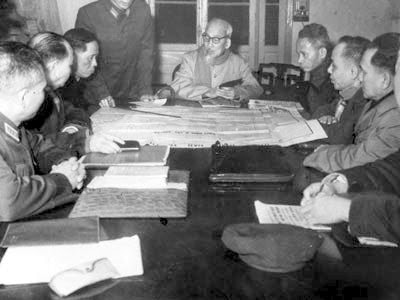 |
| Uncle Ho and members of the Politburo met to discuss the 1968 Tet Offensive. |
December 1967, Uncle Ho chaired the Politburo meeting, analyzed the situation, and decided to launch a general offensive and uprising in Tet Mau Than 1968 to gain decisive victory. Then, in January 1968, the 14th Central Conference (term III) passed the Politburo Resolution of December 1967, affirming the determination, goals, and strategic direction of the victory.
April 30, 1975,After more than 20 years of arduous resistance, the country was reunited. On the joyful day of reunification, he was no longer there to see that joy, but the whole nation still always looked to him./.
Peace
(Synthetic)
| RELATED NEWS |
|---|

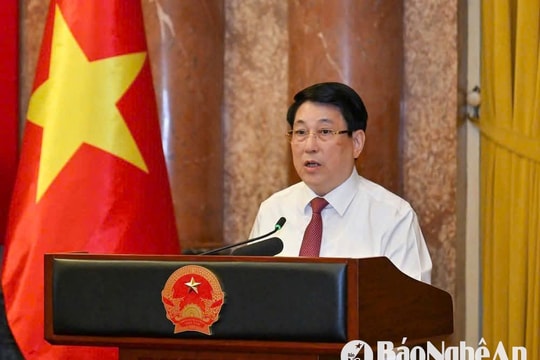
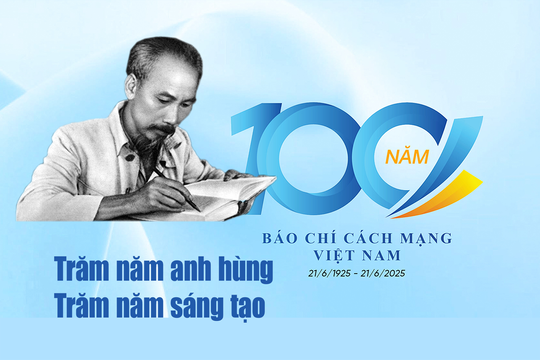
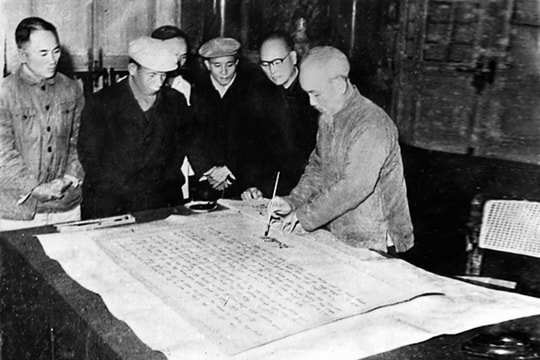
.jpg)
